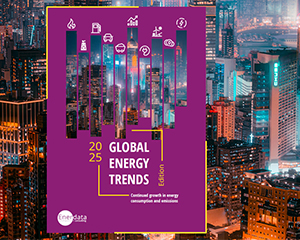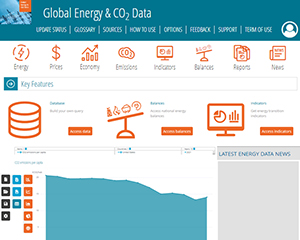Natural gas domestic consumption
Global gas demand rebounded by 2.8% in 2024, spurred by China, Russia and the USA.
+6%
Growth in Russia’s gas consumption, which is now 16% above its 2010 level.
Global gas demand rebounded by 2.8% in 2024, spurred by China, Russia and the USA.
Global gas consumption, which had dipped by 2% in 2022 amidst record-high gas prices and rebounded by 1% in 2023 over falling prices, grew again by 2.8% in 2024 in a context of decreasing prices (-15% on average in 2024 but still well above their pre-crisis levels in Europe and Asia).
Gas consumption grew in the three largest markets: it rose by 1% in the USA – the largest gas consumer in the world (22%) – as the higher demand from the power sector was partly offset by a stable industrial consumption and a lower residential and commercial demand. In Russia (12% of global gas consumption), gas demand grew by over 6% as the country is developing its domestic gas infrastructure and converting transports to gas and LNG. Gas consumption also increased in China (+7%) supported by a higher demand from the power sector and by cheaper LNG prices. China now accounts for 11% of the global gas consumption, on par with Europe, whose gas consumption remained stable after two years of sharp decline, despite a slight increase in Germany over higher demand from industry and the power sector and a strong growth in Türkiye.
Gas consumption also grew in Canada, in Asia (especially in India, Indonesia, South Korea, and Taiwan), in the Middle East (especially in Iran and Saudi Arabia), and in Africa (especially in Nigeria, Algeria and Egypt). On the contrary, rising carbon-free power generation reduced gas consumption in Japan (-3%) and Australia (-4%), while lower LNG exports reduced gas consumption in liquefaction plants in Qatar.
Breakdown by country (bcm)
World
Trend over 1990 - 2024 - bcm
% in total consumption (2024) - Mtoe
Our 2025 edition of Global Energy Trends presents insights on essential energy data.
We have contextualised these findings against long-term climate targets :
- Which must accelerate their efforts to meet 2050 targets?
- What are the underlying drivers explaining why Europe is struggling to achieve the Paris Agreement objectives?
- Which regions are making substantial contributions to climate mitigation?
Need more data? All the information presented in this energy data tool are extracted from Global Energy & CO2 Data service, the most comprehensive and up-to-date database on all gas states and sources: natural, manufactured and LNG. Access to the whole gas value chain information: reserves, production, trade, LNG liquefaction capacities, prices, consumption per sector and indicators.
Discover this service


